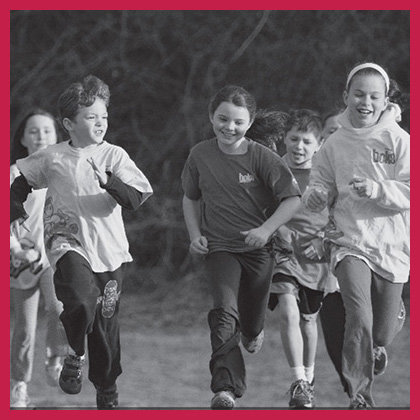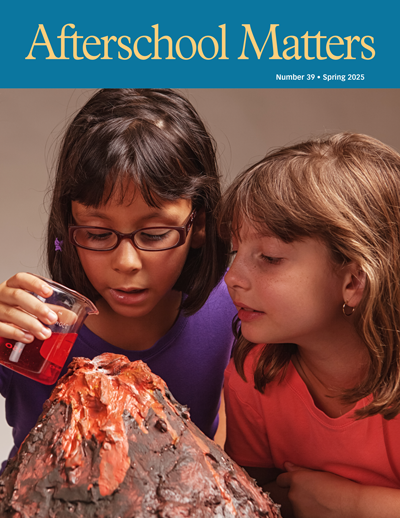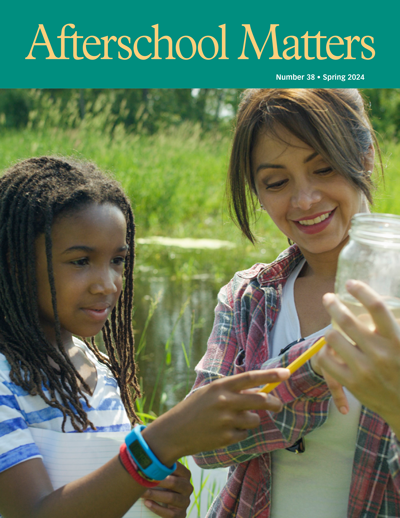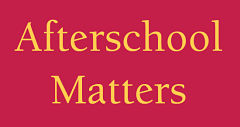Innovative Research Findings Help Meet Diverse Needs of Afterschool Programming
December 11, 2015
WELLESLEY, MA – The newest edition of Afterschool Matters, the national, peer-reviewed journal dedicated to promoting professionalism, scholarship, and consciousness in the field of afterschool education, is focused on inventive programs that aim to engage youth and improve afterschool offerings to ultimately build better futures for young people and support their positive development.
WELLESLEY, MA – The newest edition of Afterschool Matters, the national, peer-reviewed journal dedicated to promoting professionalism, scholarship, and consciousness in the field of afterschool education, is focused on inventive programs that aim to engage youth and improve afterschool offerings to ultimately build better futures for young people and support their positive development.
 This edition looks at the Robert Browne Foundation’s decades of support for youth development programs, the creative techniques out-of-school time (OST) programs employ to teach science, technology, engineering, and math (STEM), how youth-adult relationships built on respect and empathy can benefit low-income boys of color, positive ways to include youth perspectives when evaluating and improving OST programs, and the benefit physical activity has on children’s mental abilities.
This edition looks at the Robert Browne Foundation’s decades of support for youth development programs, the creative techniques out-of-school time (OST) programs employ to teach science, technology, engineering, and math (STEM), how youth-adult relationships built on respect and empathy can benefit low-income boys of color, positive ways to include youth perspectives when evaluating and improving OST programs, and the benefit physical activity has on children’s mental abilities.
“Professionals in this field are constantly looking for new ways to meet the varied needs of children and youth served by out-of-school programs,” said Georgia Hall, Ph.D., senior research scientist at the National Institute on Out-of-School Time (NIOST) at the Wellesley Centers for Women (WCW), managing editor of the journal. “This issue of Afterschool Matters highlights these needs as well as the diverse expertise within the out-of-school time field.”
Articles in the current issue include “A Deep Passion for Reading and Writing: An Interview with Lena Townsend,” “Learning Across Space Instead of Over Time: Redesigning a School-Based STEM Curriculum for OST,” “Creating Opportunities for Mutual Affiliation: Gang Prevention and Relational-Cultural Theory in Project YES,” “A Youth Development Approach to Evaluation: Critical Participatory Action Research,” “Using Action Research to Engage Youth in Improving OST Programming,” “Research-Based Practices in Afterschool Mentoring Programs,” “Bringing in the Tech: Using Outside Expertise to Enhance Technology Learning in Youth Programs,” and “Before the School Bell Rings: How a Before-School Physical Activity Program Improves Executive Functions.”
Since 1979, the National Institute on Out-of-School Time has been dedicated to moving the afterschool field forward through its research, education and training, consultation, and field-building. Much of NIOST’s work has encompassed projects of national scope and influence, several representing “firsts” for the field and many focusing on building out-of-school time systems. NIOST is a program of the Wellesley Centers for Women where scholars work to advance gender equality, social justice and human wellbeing. We shape a better world for women and girls, families and communities through our innovative research, theory, and action.
More information about Afterschool Matters, including links to current and past issues of the journal, is available at www.niost.org/Publications/afterschool-matters-journal.



